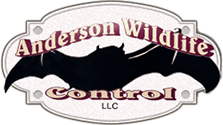With summer arriving, you will start to notice more wasps flying around. Yellow jackets and hornets will be making nests around homes and buildings and buzzing around. Yellow jackets and their close relative hornets are the most aggressive and are the ones that cause people the most problems. Avoid being stung this summer by getting professional help.
You can distinguish wasps from bees by their thin waists. Unlike bees, wasps are carnivorous, primarily eating other insects. They will also feed on picnic fare, such as meats, fruits, and soft drinks. When you are considering the control of wasps in your area, you should also remember that they can be beneficial. Wasps will kill many pest insects to feed to their young. If their nest is in a location where it is not likely to be bumped or disturbed, you might want to just leave the nest and let them eat the pests. The colony will only remain active for one summer, after which the queens will fly away to start colonies of their own. The wasps that are left behind will die at the end of summer and the nest will not be used again.
If removal is necessary, your best option is to get professional help from a pest control company. Disturbance of a wasp nest could trigger a massive attack, putting you at risk of being stung. If you should choose to eliminate the wasps nest on your own, complete body coverage and protection is a must.
Wasp nests should be treated in the early morning or evening when the wasps are less active. Commercial wasp and hornet insecticide that can be applied from a distance or foggers containing pyrethrins should be used. Many of the insecticides will act as a repellant, driving the yellow jackets into the nest. You can then place the nest in a sealed bag and apply lethal doses of the insecticide. To manage wasps at picnics, hang a piece of meat or fish over a gallon container of soapy water. When these insects leave the hanging bait, they will often drop down into the water.








